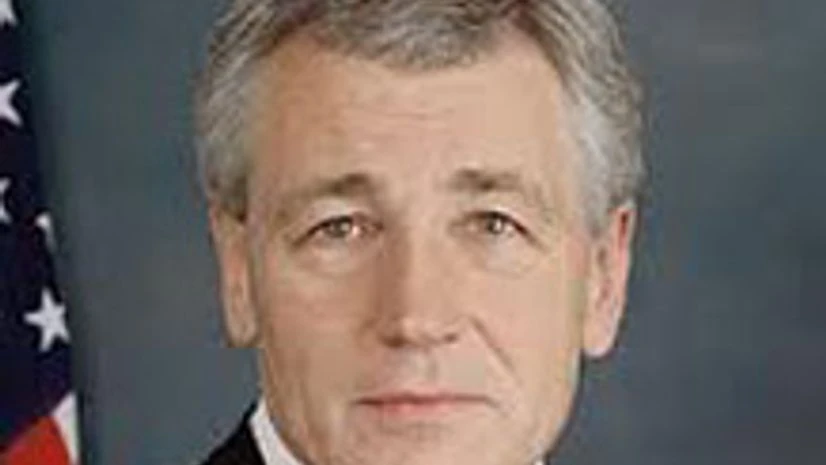Hagel was speaking at a joint news conference with the visiting Japanese counterpart Itsunori Onodera.
"We have said we are working with our allies to be prepared for any contingency. But I would again call upon the North Korean government to take the path of peace. There is an effective, wise course of action to enhance their people and nation, and they should take advantage of that," Hagel said.
"Our capabilities, with our allies in the region, to deal with provocations, as we have said before, is one that gives us a strong set of preparations, which we are prepared for any contingency," he said.
The current situation in the Korean Peninsula in view of the provocative actions from Pyongyang was one of the major topics of discussion during the meeting of Japanese and US defence ministers.
Hagel also cautioned China from any "misadventure" on the Senkaku Island, stating that the US recognises administrative control of Japan over the disputed territory and falls under its security treaty obligation with Tokyo.
Responding to a question through interpretation, Onodera said, "We have analysed the information that we have gathered, and we have been sharing it between our two countries."
"But as far as I know, for the time being, I have not received any information that would allow us to level down our level of the patrol against North Korea," Onodera said.
Noting that the most obvious threat to stability in the region is the provocative behaviour of North Korea, Hagel said the two defence ministers agreed that continued close coordination between US and Japanese forces will be essential for monitoring and responding to any further provocations, particularly cooperation on missile defence.
"Today, we made progress on plans to deploy a second TPY-2 radar to Japan, which will help protect both of our nations from the threat of North Korean ballistic missiles.
The US remains steadfast in our defence commitments to Japan, including extended deterrence and a further nuclear umbrella," he said.
On the issue of Senkaku Island, Hagel said "the US does not take a position on the ultimate sovereignty of the islands, but we do recognise they are under the administration of Japan and fall under our security treaty obligations."
"Any action that could raise tensions or lead to miscalculations affect the stability of the entire region," he said.
"Therefore, the US opposes any unilateral or coercive action that seeks to undermine Japan's administrative control -- a message General (Martin) Dempsey (Chairman of the Joint Chiefs of Staff) conveyed to his counterparts last week in Beijing," Hagel said.
Following a bilateral meeting at the Pentagon, the Japanese Defence Minister said he explained Japan's basic position that the islands are clearly an inherent part of its territory in light of historical facts, and based upon international law.
Japan is determined to protect its land, water and air, he stressed.
"Secretary Hagel and I confirmed that Article 5 of the US-Japan security treaty applies to the Senkaku Islands and that we are opposed to any unilateral action that aims to change the status quo by force," he asserted.
Responding to questions, Onodera said the two countries are now reviewing the US-Japan defence cooperation of 1997.
"The current guidelines for US-Japan defence cooperation was drafted in 1997. Therefore, a certain amount of time have passed since then, and we have seen drastic changes in the security environment," he said.
"US and Japan have been studying on roles, missions and capabilities discussions, and we have just started the discussion on the strategic environment perception between our two countries, especially. And as for the schedule of this review, I think it's going to take a few years," he said.
Hagel said strengthening military-to-military security relationships among the two allies directly will enhance stability and security, therefore enhancing business and peace in the region.
Referring to the bilateral talks, Hagel said the two countries are taking significant steps to deepen economic and diplomatic ties, including recent progress towards Japan joining the Trans-Pacific Partnership trade negotiations.
"Strengthening our security alliance is also critical to achieving the goal of the US, that is, to re-balance, enhancing prosperity and promoting peace and stability in the region." he said, holding the provocative behavior of North Korea as the most obvious threat to stability in the region.
Continued close coordination between the US and Japanese forces will be essential for monitoring and responding to any further provocations, particularly cooperation on missile defense, he said.

)
